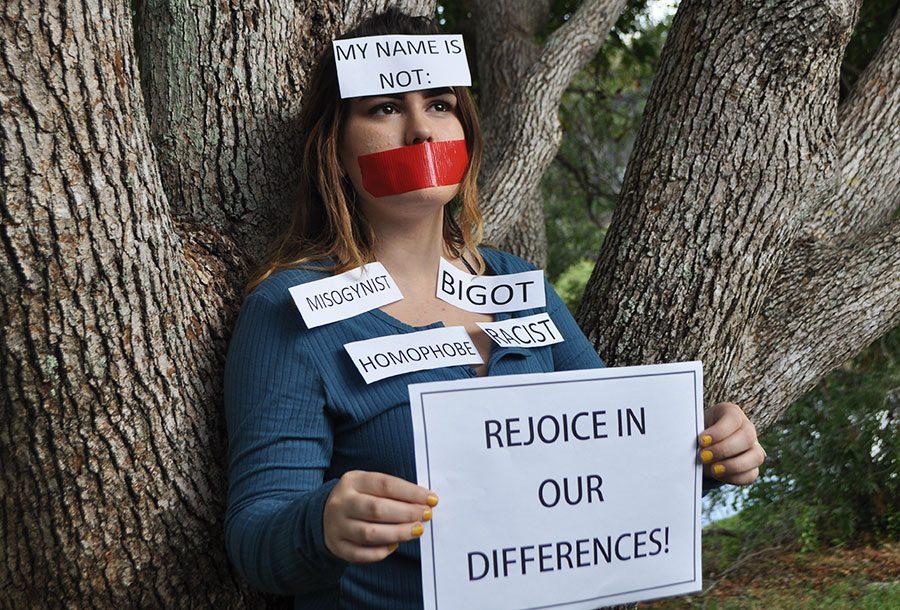REJOICING IN DIFFERENCES
Students are berated for political preferences.
December 5, 2016
In the wake of one of the most controversial presidential elections, tensions are higher than ever. Protests have taken place all over the country. Some of these “peaceful demonstrations” have transitioned into hate-filled riots, which have no place in a democratic society. Not only is hate being directed at President-elect Donald Trump, but it is also directed at individuals in the Republican party.
Politics are always controversial because they involve an individual’s moral and societal beliefs, meaning there is no correct political party. Republicans typically take conservative stances on issues such as abortion, gay marriage, and global warming, whereas Democrats are liberal on these issues and are known for their promotion of tolerance.
Liberals promote the idea of tolerance for every gender, religion, race, and sexual preference; however, it is clear that this tolerance does not extend to conservatives. This is evident by the overwhelming statements that label Republicans as “bigots,” “racists,” and “homophobes.” Not only are they labeled negatively, but they are also told their beliefs are wrong and something to laugh at.
Schools promote individual thinking and expression of opinions, yet want students to refrain from political and religious discussions within classrooms that are “disruptive.” Despite this, there have been many classroom discussions regarding the election and the candidates. Some of the discussions include a teacher acting as a facilitator of conversation and others solely involve students. In the majority of cases, students identifying with the Democratic party speak up and state their opinions. This is perfectly acceptable, but crosses a line when conservative students are told how wrong their beliefs are and how bad of a person they are for those beliefs.
“I have been personally attacked by those in opposition to the Republican party with statements that negatively generalize those who aligned with Donald Trump during the election,” said junior AnnaBrett Ruggiero. “After these statements, I was left feeling criticized and deeply saddened because of the way others treat me due to my differing beliefs.”
If being verbally degraded and insulted doesn’t affect a teenager, then it’s hard to imagine what would. Generalizing all liberals is as equally unfair as generalizing Republicans.
A country built on differences should rejoice in them instead of attacking each other. Accepting that Donald Trump is America’s presidential-elect is the first step in uniting the country. If people are unwilling to accept this, there are only four more years to another election where America can speak again.
“We are not groups of parties, that doesn’t matter now,” said junior Mariah Van Horn. “If you live in America, then do not be ashamed to call yourself an American.”
























